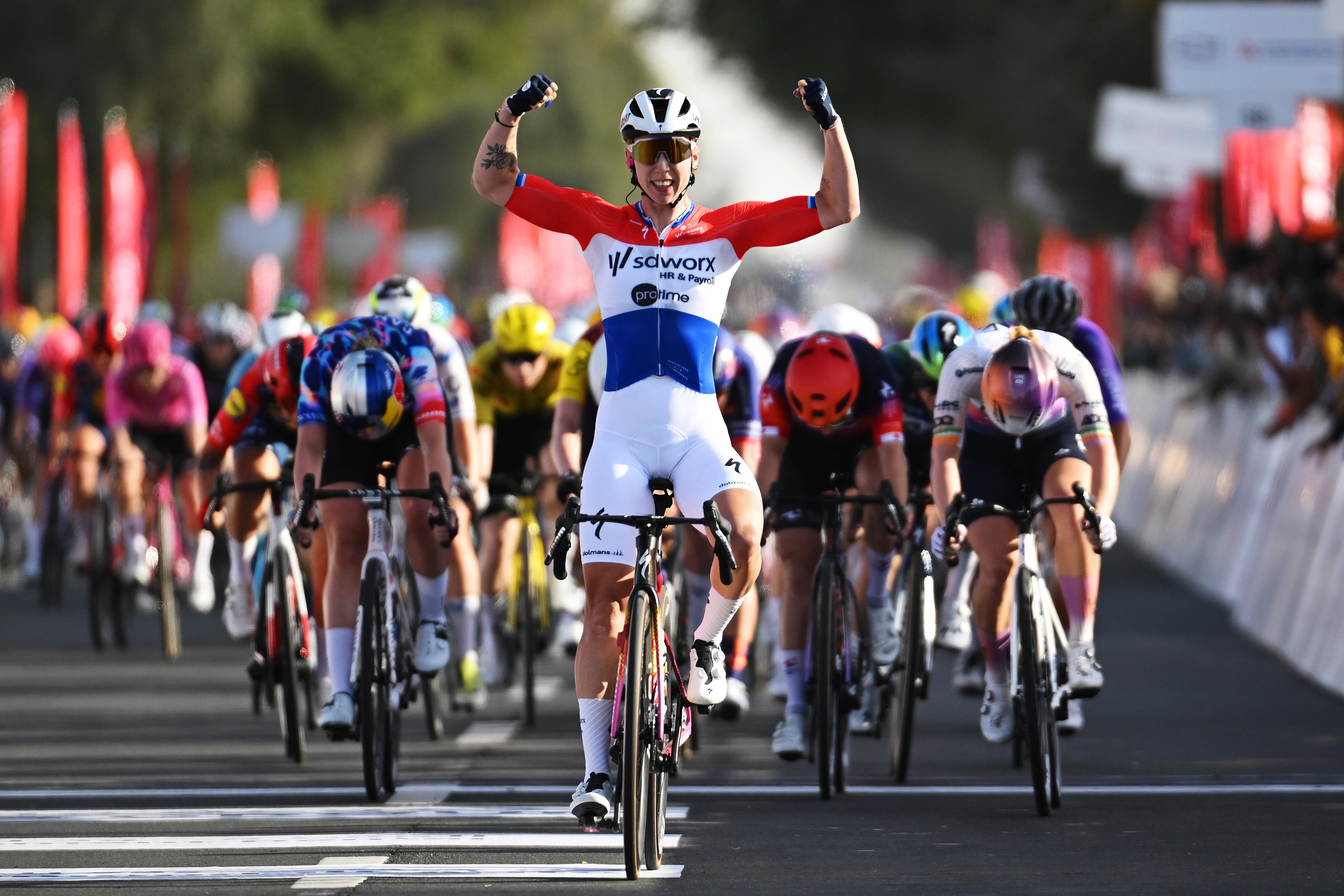Six conclusions from 2023 Tirreno-Adriatico and Paris-Nice
Pogacar's dominance, Roglic's hat trick, Vingegaard's setback, Gaudu's step forwards and more...
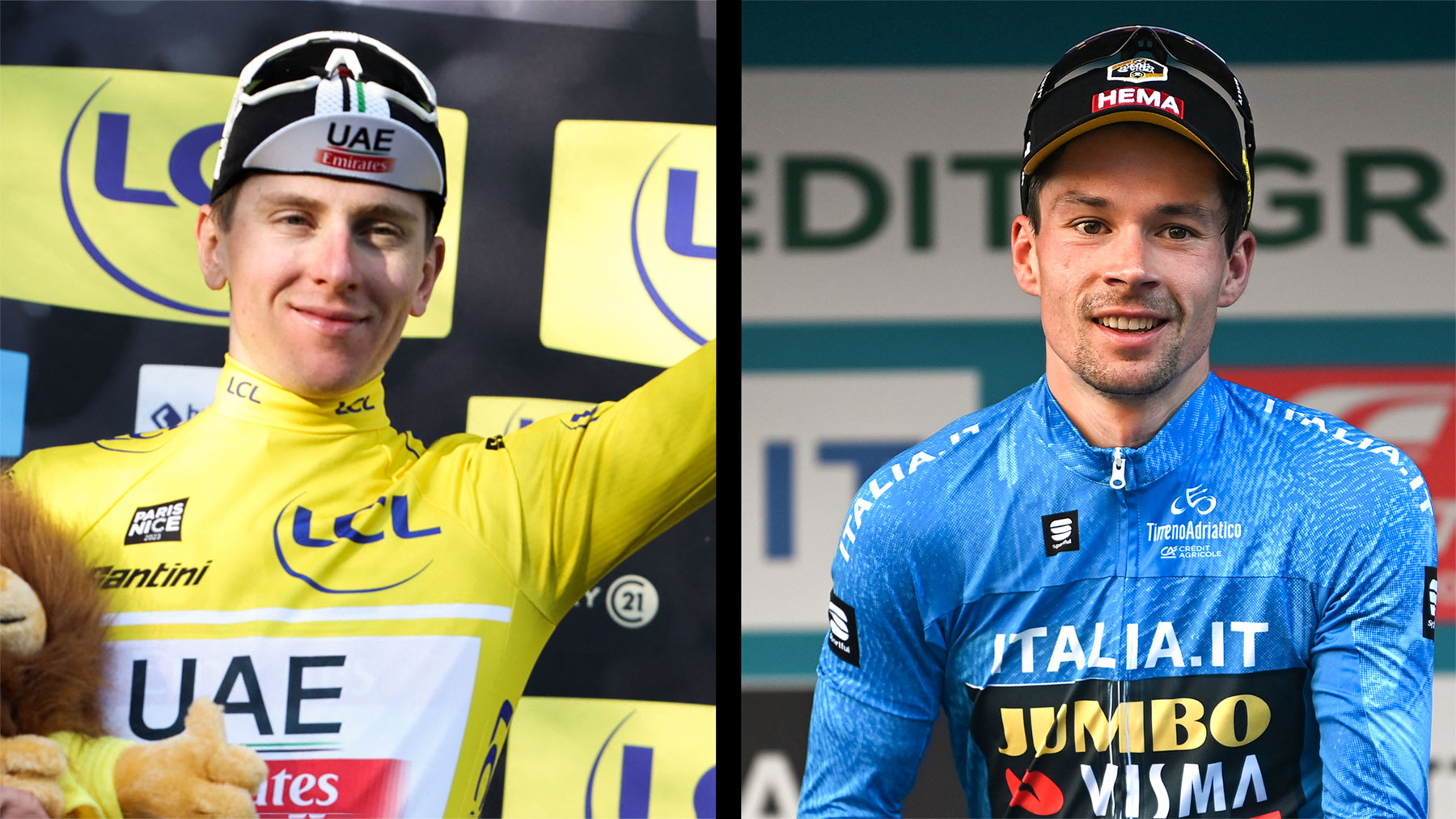
The latest race content, interviews, features, reviews and expert buying guides, direct to your inbox!
You are now subscribed
Your newsletter sign-up was successful
The first two European WorldTour stage races of the season, Paris-Nice and Tirreno-Adriatico, rarely fail to produce some high-calibre performances and opportunities to read the omens for the rest of the spring calendar. And this year, despite bad weather partially affecting both events, both the Race to the Sun and the Race of Two Seas fully lived up to expectations.
Tadej Pogačar's spectacular performance in Paris-Nice has already left a major mark on a season where he's rarely been off the top step of the podium. And Primož Roglič has confirmed in Italy with his rare and impressive triple of consecutive stage victories that he remains a huge force to be reckoned with, even as the Giro d'Italia, his main target of the year, draws ever closer.
Yet if the road racing beat went on for Slovenian cycling at near-deafening volume, we also witnessed host nation France celebrate one of its most notable recent results in Paris-Nice, a possible setback for the defending Tour de France champion and fresh fuel for the longstanding debate about the wisdom of holding two major WorldTour races simultaneously.
The 2023 editions of Paris-Nice and Tirreno-Adriatico were entertaining in their own right, but they also provide plenty of room for discussion as to what their results imply for both the major Classics and the Grand Tours. With next weekend's Milan-San Remo just around the corner, both geographically and time-wise from Sunday's finish of Paris-Nice, any conclusions drawn now will not have long to wait to be put to a fresh reality check.
Tadej Pogacar the reference point again
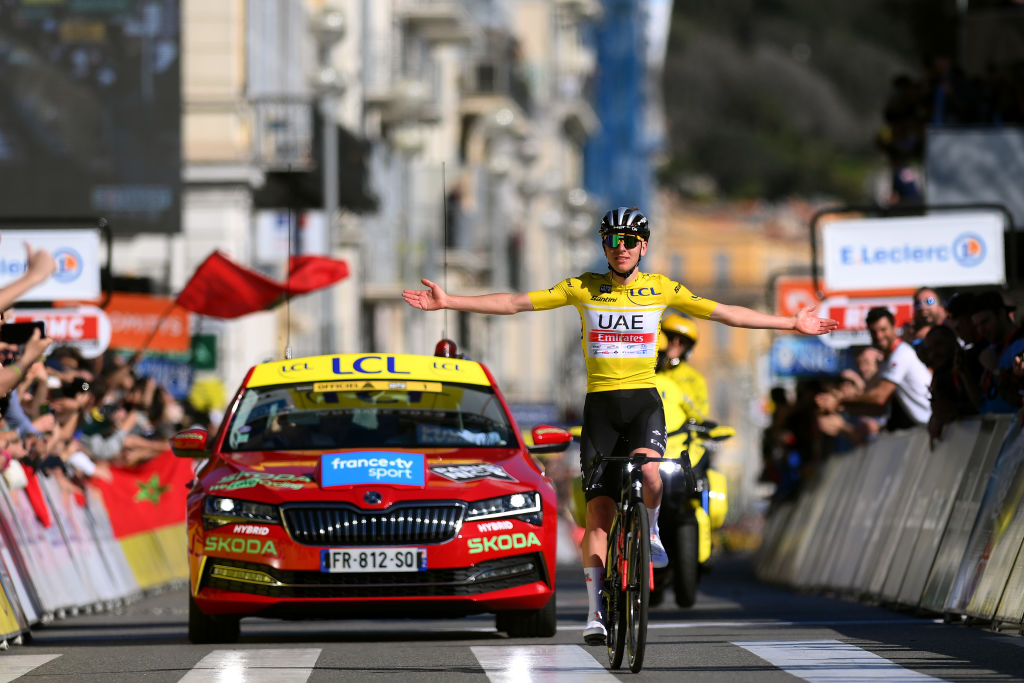
Just imagine for a second that rather than the UAE Team Emirates leader bowing to the public as he swept along the Promenade des Anglais on Sunday, it was his rival Jonas Vingegaard who was soaking up the applause in the final metres of the 2023 edition of Paris-Nice.
It says it all about the scale of Pogačar’s victory in his maiden participation in Paris-Nice and his omnipresence at the head of the action that that particular scenario is now all but impossible to conceive. His wins on all three of Paris-Nice’s mountain stages and the overall victory in the spring’s toughest week-long event by the biggest margin in a decade collectively represent a level of domination that puts the Slovenian firmly back in stage racing’s driving seat.
It all but goes without saying, too, that after a February that already boded more than well for 2023’s big challenges, Pogačar is now enjoying the kind of major momentum that will create major expectations not just in the Classics, but also in the Tour de France and the rest of the year. (AF)
Jonas Vingegaard under the microscope
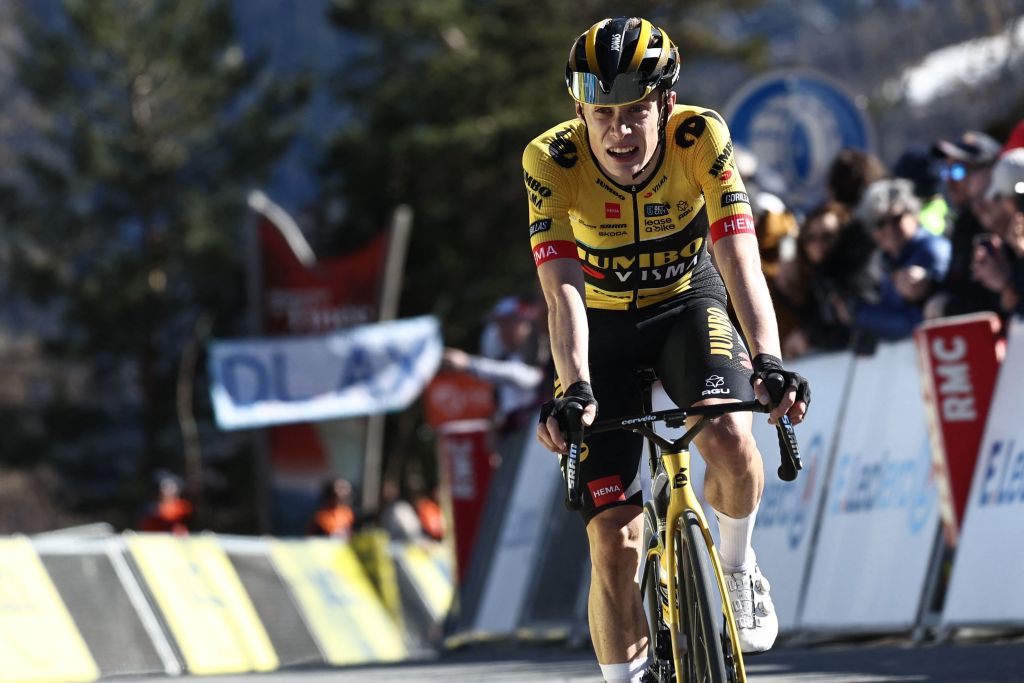
The early days of 2023 boded almost as well for Jonas Vingegaard as they did for Tadej Pogačar: three stage wins out of a possible three and the overall in O Gran Camiño indicated stunning early season form, and strongly hinted that the Dane was tuning up very nicely for the rest of the year.
How much of a setback is his not just losing Paris-Nice to Pogačar, but also missing out on second place to David Gaudu? As ever with week-long stage races in the spring, it largely depends on what happens next. Should Vingegaard be back in form in his final preparation races for the Tour de France, with the glorious benefit of hindsight, Paris-Nice will be seen as a brief dip, rather than the start of a nosedive, in his season, let alone his career.
The latest race content, interviews, features, reviews and expert buying guides, direct to your inbox!
Furthermore, Jumbo-Visma’s stage 3 team time trial success confirmed their collective rock-solid form, along with Olav Kooij’s steady rise through the sprinters’ ranks and his biggest win to date last week, represent two very good reasons for the Dutch team to still feel upbeat about Paris-Nice.
So it remains to be seen. Paris-Nice could yet be the low point of Vingegaard’s year, and finishing third in France’s second biggest stage race is, in any case, a much better result than plenty of Pogačar’s other rivals for July can take away from last week.
But a third place in Paris-Nice is also a result which places Vingegaard's next performances under much closer scrutiny than a defending Tour champion would perhaps usually receive mid-way through the spring. There’s no escaping the fact that it puts a dent in the automatic assumption that, as defending champion for July, Vingegaard is the key reference point all the way through until the summer proves otherwise, or not. Not a huge dent, perhaps, but one that can’t be ignored, either. (AF)
David Gaudu: a podium that changes everything?
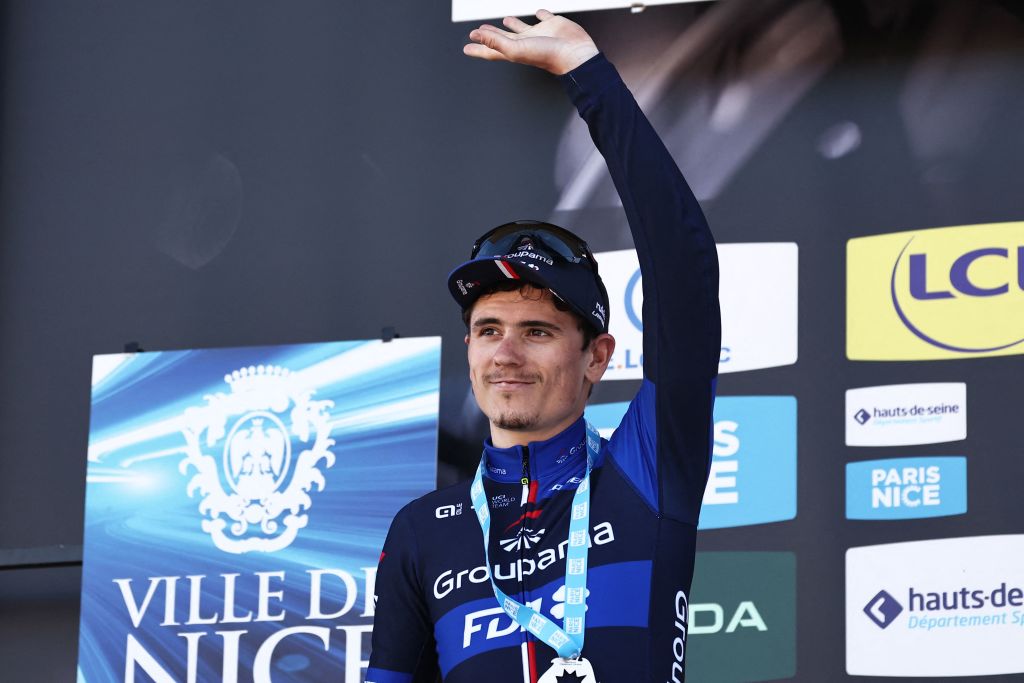
"David Gaudu: a podium that changes everything" was L’Équipe’s headline on Monday morning after the French racer clinched second overall in Paris-Nice.
"He was up there with the best," the newspaper also rightly pointed out, although its insistence that "he was the only one that made Pogačar suffer" is perhaps overstating the game-changing nature of the Frenchman’s performance.
That's partly because after taking fourth in last year’s Tour de France, Gaudu has already proved that he can rub shoulders with the top-level stage racers. This March he has shown that – unlike nine months ago – he was able to go the distance on the mountain ascents with Jonas Vingegaard and challenge Pogačar.
But compared to the Alpine and Pyrenean cols of the Tour, the climbing in Paris-Nice remains a very different kettle of fish.
So what Paris-Nice represents for Gaudu is a key breakthrough in week-long stage racing. It's the Frenchman's first podium finish at WorldTour level, and in such stellar company to boot. That's perhaps not quite as dramatic a step forward as the L’Équipe headline suggests, but a massively important step forward all the same. (AF)
Primoz Roglic shows he is ready to take on Remco Evenepoel
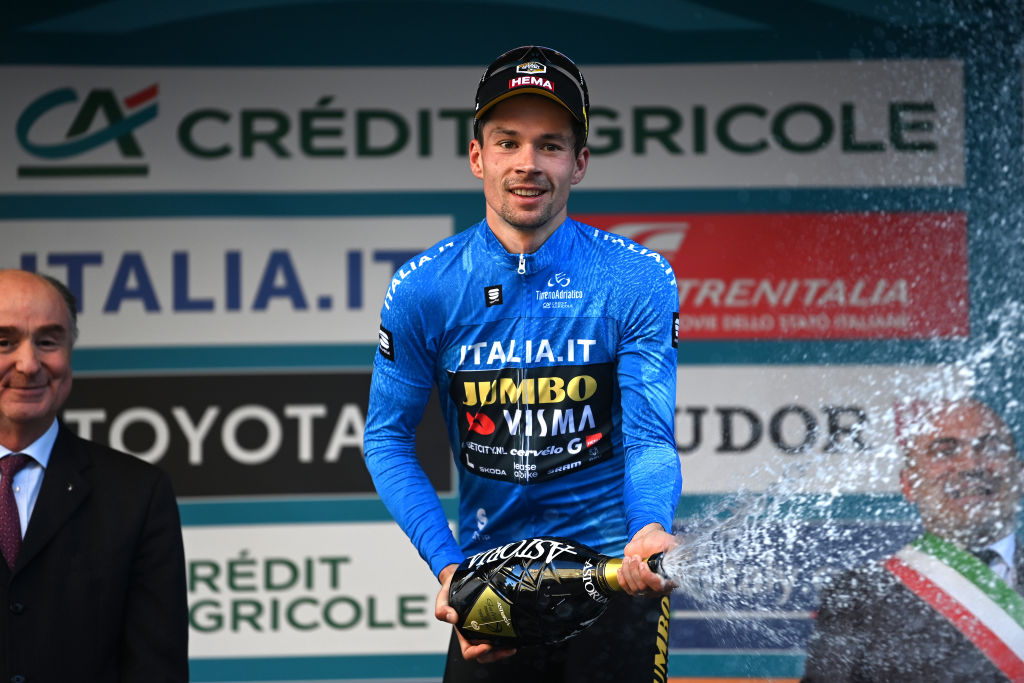
Roglič was a late entry for Tirreno-Adriatico, with the Jumbo-Visma rider only adding his name shortly before the final 72-hour deadline and playing down his chances of success.
Yet, after seven days of racing and three stage victories, it is evident that the Slovenian has made a full recovery from his shoulder surgery, has worked hard during the winter and so is very much back to his best and on track to take on Remco Evenepoel at next week’s Volta a Catalunya and then at the Giro d’Italia in May.
Roglič insisted "There is plenty to work on" for him to be at his best for the Giro d’Italia but he can approach the rest of the spring with confidence, knowing he is on track for a one-peak spring.
His Tirreno-Adriatico victory was also revenge for Jumbo-Visma. Jonas Vinegaard lost his battle with Tadej Pogačar at Paris-Nice but Roglic got the better of João Almeida and the rest of the UAE Team Emirates team. (SF)
Jasper Philipsen leaves his sprint rivals behind
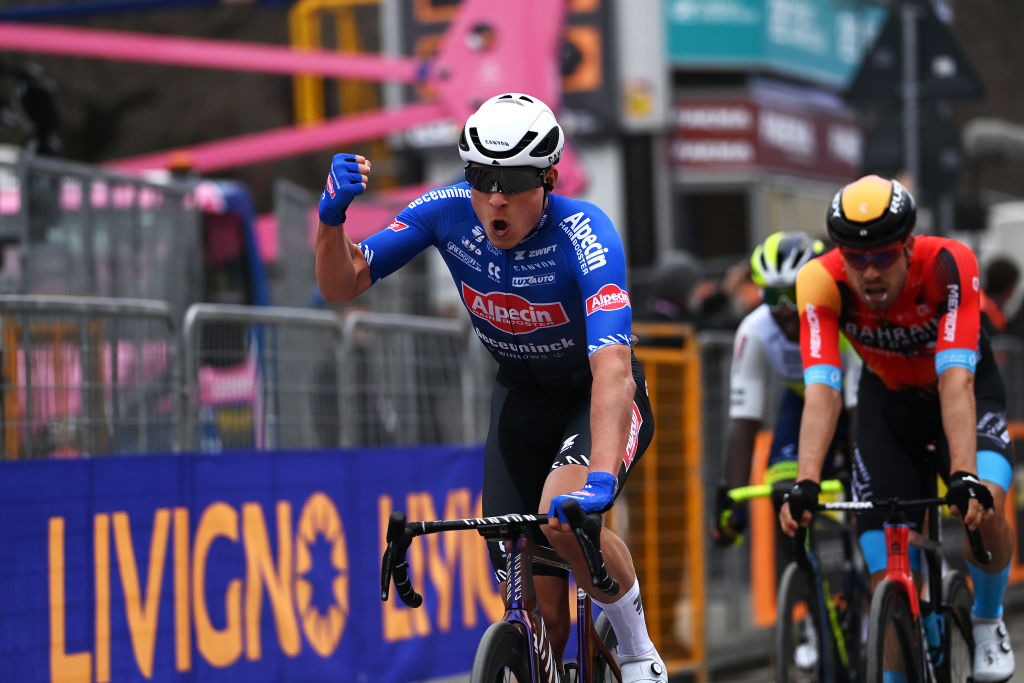
Jasper Philipsen (Alpecin-Deceuninck) rejected the idea that his two sprint victories at Tirreno-Adriatico meant he is currently the best sprinter in the world.
However, the Dutchman’s sprinting prowess, the superb lead-outs from teammate Mathieu van der Poel, and his finishing speed combined to place him above his rivals. Fabio Jakobsen (Soudal-QuickStep) won stage 2 to Follonica, only narrowly beating Philipsen. But he was then only ninth the day after in Foligno and only 22nd in San Benedetto del Tronto on Sunday. His trusted lead-out man Michael Mørkøv was not at Tirreno-Adriatico and was greatly missed in the often messy sprints.
Elsewhere, Mark Cavendish (Astana Qazaqstan), Peter Sagan (TotalEnergies) and Britain’s Jake Stewart (Groupama-FDJ) also struggled to find a way to the front to contest the sprints, while Dylan Groenewegen (Jayco Alula) suffered in the hills of Tirreno-Adriatico just for a second place on stage 7. Biniam Girmay (Intermarché-Circus-Wanty) was third and then fourth in sprints but barely featured, while Fernando Gaviria (Movistar) almost won stage 2 but only by trying to anticipate his rival sprinters. (SF)
Simultaneous WorldTour races are bad for the sport
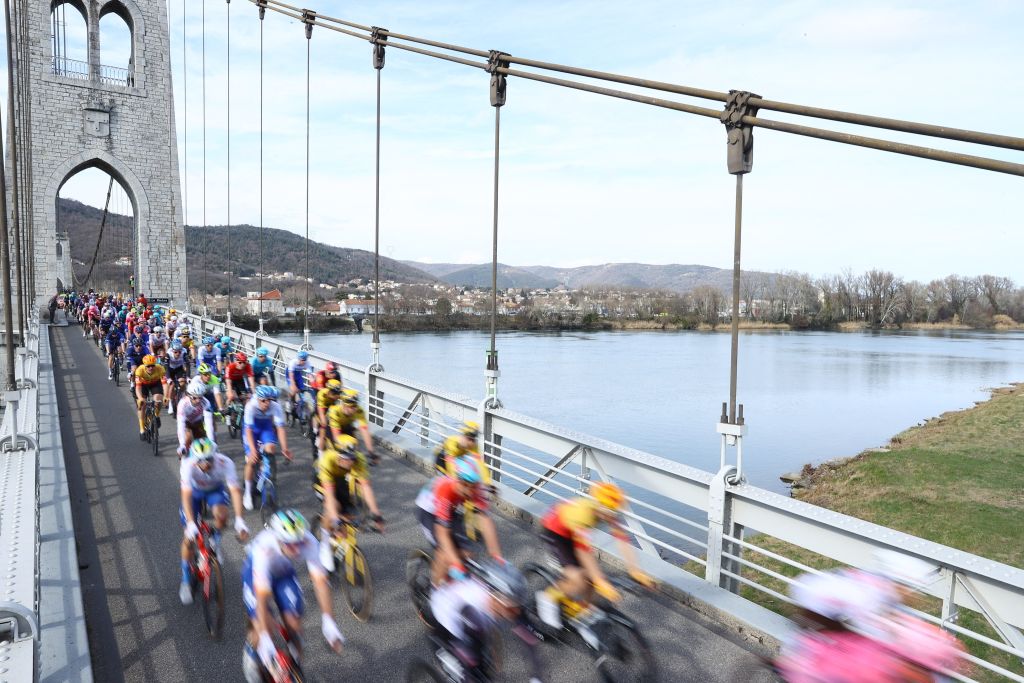
Last week provided some great racing in both Paris-Nice and Tirreno-Adriatico but by being held at the same time, it was impossible to really enjoy and appreciate both races. Major race overlaps are simply bad for the sport in every way.
The UCI accepts that the WorldTour race calendar should be changed but getting the race organisers to agree and finding suitable dates in the calendar has so far proven impossible, with ASO and RCS Sport in an eternal turf war. ASO convinced Tadej Pogačar and Jonas Vingegaard to ride Paris-Nice this year but that stopped them from riding Strade Bianche, held on Saturday a day before the start.
Tirreno-Adriatico, meanwhile, moved to a Sunday finish in 2021 to please the local stage hosts, but the race has lost its relevance as the best way to prepare for Milan-San Remo. Stage races around the world in January and February, as well as the growing importance of Omloop Het Nieuwsblad and the success of Strade Bianche have changed the flow of the early season.
Training methods also mean riders are racing less and choosing their goals more carefully, reducing the big-name clashes that are so entertaining. Some calendar changes are expected for 2024, with a major shake-up announced for 2026.
However, it's clear that the race calendar has not kept up with the changes in the sport, making it harder for the fans to find or follow a narrative. With the current calendar chaos and confusion, everyone in the sport loses out. (SF)

Stephen is one of the most experienced members of the Cyclingnews team, having reported on professional cycling since 1994. Before becoming Editor-at-large, he was Head of News at Cyclingnews. He has previously worked for Shift Active Media, Reuters and Cycling Weekly. He is a member of the Board of the Association Internationale des Journalistes du Cyclisme (AIJC).
